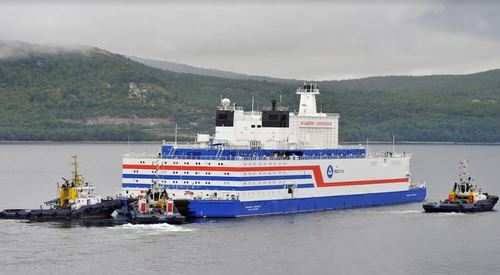India-Russia talks on floating Nuclear Power Plants

ROSATOM, Russia’s nuclear corporation wants to jointly develop a floating nuclear power plant with India, apart from other small and medium-sized reactors. ROSATOM is the main equipment supplier for India’s Kudankulam Nuclear Power Plant, which operates four Russian-designed VVER-1000 reactors. In addition to floating reactors, ROSATOM has also expressed willingness to consider building another large-scale, six-reactor nuclear power plant in India.
During Prime Minister Narendra Modi’s visit to Russia, the floating nuclear power plants is expected to be a major point of discussion. This will be propel the India-Russia nuclear cooperation to a new orbit towards innovative steps to sustainable energy solutions.
This technology offers potential benefits in terms of flexibility and power generation in remote areas. The discussions between India and Russia will further strengthen bilateral ties in the energy sector.
Floating nuclear power plants are a unique concept that involves constructing nuclear reactors on floating platforms, typically ships or barges. These plants offer several advantages, including flexibility in deployment, potential for use in remote areas, and the ability to provide power to coastal regions without the need for extensive land-based infrastructure.
India has shown growing interest in small modular reactors (SMRs), including the possibility of ship-mounted SMRs. The visit to the Pilot Demonstration Energy Complex (PDEC) in Seversk, Tomsk region, as part of the Proryv (the Breakthrough) strategic industry project, highlights India’s exploration of this technology.
The visit also aims to discuss the further development of traditionally friendly Russian-Indian relations, as well as relevant issues on the international and regional agenda.




